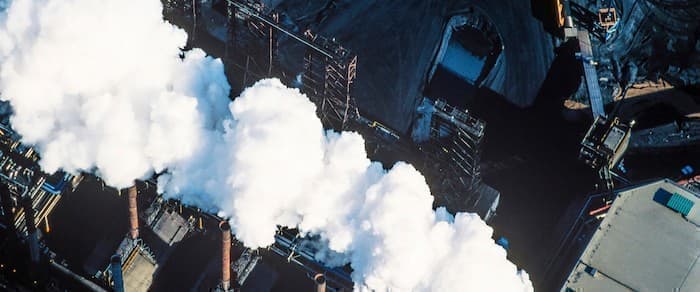The private equity industry is in a rush to leave Canada's oil sands—once a lucrative investment but no longer—as emission reduction takes priority. According to a Reuters report citing unnamed sources, there are at least a dozen such companies on sale right now. And this could be good news for other oil producers.
In fact, it could improve their chances of survival.
The moment is perfect for the sellers: Canadian crude has rebounded strongly from the troughs it traded at last year and even the year before when the industry there was hurt by a shortage of pipelines making exports more expensive. Yet this moment is also perfect—in a sense—for other Canadian energy companies looking to ramp up their operations and make them more economical.
Despite the improving prices, Canadian oil companies are not in the best of places as the federal government of the country makes more climate pledges. As a result, capital spending is falling. Soon, production will follow.
The Financial Times reported last month that Canadian crude output had reached 3.5 million bpd in the first half of 2021 as the industry recovered from the worst effects of the pandemic during its first year. This was a record high, which is a little ironic given the trouble that the Canadian oil sands industry has been having with regulators, the government, and its biggest export buyer in the past few years.
Related: Saudi Forces Thwart Houthi Attack On Oil City Canadian oil sands are a particularly carbon-intensive way of extracting crude oil. Because of that, oil sands producers are subject to strict environmental regulation. At the same time, the Trudeau government has big ambitions in carbon reduction, including putting a price on carbon to the tune of $16 (C$20) per ton, scheduled to rise to $134 (C$170) by 2030. Meanwhile, the United States administration is banning Canadian oil pipelines and, what must have hurt the most, calling on OPEC+ to boost oil production to help make gasoline at U.S. stations cheaper rather than turning to ally and friend Canada.
Leaving aside the sting of President Biden's controversial appeal to OPEC from earlier this year—to which the cartel turned a deaf ear—Canada's oil industry may well be facing an existential crisis. It may take a while, but if this and future federal governments stay on the emission-reduction course, Canadian oil risks a slow but sure demise.
"If governments get serious about their net-zero targets, [then] high-cost and ESG-sensitive supplies like the Canadian oil sands cannot grow, and their continued existence comes into question," the FT quoted Al Salazar from consultancy Enverus as saying.
This is where consolidation comes into play and why private equity's rush to exit the oil sands could not have come at a better time for those companies that are bent on survival.
"Everyone wants to see more size, more scale, more safety. That's one of the driving forces as to why we are seeing more consolidation," Scott Barron, head of investment banking in Calgary at TD Bank, told Reuters.
Safety in synergies seems to be the motto behind the consolidation, made possible thanks to the oil price rebound, which has provided prospective buyers with the means to afford an acquisition or a merger. Already, according to IHS Markit data cited by Reuters, private equity firms have sold $2.6 billion worth of oil assets in Canada, which were bought by local sector players.
Related: Iraq Secures New Investments In Its Booming Oil Industry
The time may be good for consolidation, but the future remains uncertain, even with a more consolidated oil industry. Big Oil left Canada's oil sands, and now private equity is leaving, too. These two facts could be easily interpreted as examples of the proverbial rats—and, to be fair, any other life form that wants to survive—leaving a sinking ship. On the other, they could be interpreted as examples of a shift in priorities across industries as emission reduction takes center stage from energy to healthcare.
This is unfortunate for Canadian oil, but there is still hope for the future. Oil is still one of Canada's major exports, bringing in export revenue dollars. It is also the biggest foreign source of oil for the world's largest consumer—the United States. And these exports have not been on the decline recently—quite the contrary, in fact. They have continued strong despite the Keystone XL pipeline cancellation and despite the other pipeline projects that are being challenged at every turn by regulators and organized protesters.
"The Biden administration pleading with OPEC to increase oil production to rescue the U.S from high fuel prices months after canceling the Keystone XL pipeline smacks of hypocrisy," said Alberta's energy minister, Sonya Savage, following the U.S. appeal with the cartel to boost production. Meanwhile, Canada's emissions have continued rising despite the Trudeau government's stated goal to reduce them significantly. The question for Canada's oil sands seems to be whether hypocrisy could bring down an entire industry.
By Irina Slav for Oilprice.com
More Top Reads From Oilprice.com:
- Why Bank Of America Thinks Oil Prices Are Heading To $100
- China’s Futile Attempt To Send Oil Prices Lower
- Gazprom: Russia Has Gas Reserves For More Than A Century

















Oddly enough the US taxpayer is out $7 *BILLION* US Dollars from a *PERFECTLY WELL FUNCTIONING* carbon capture unit that was built and being commissioned in Northern Mississippi called "Kemper Energy" not that long back.
Huh.
Wonder why all those oil speculators wanted that project nuked? Anyhow definitely need to improve the pipeline situation off the Coast of Louisiana *yet again* so that sounds bullish for Steel Dynamics of Texas.
Long $kmi Kinder Morgan Energy
Strong buy